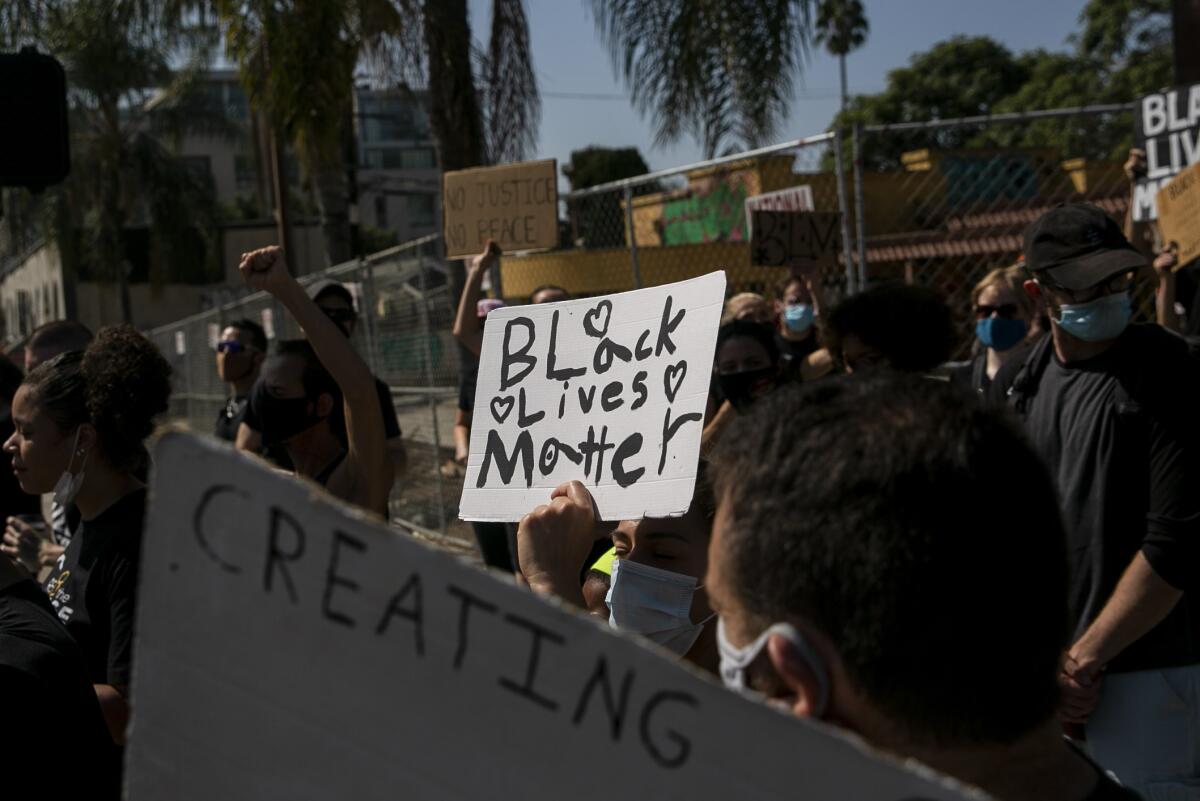Illinois city becomes first to offer reparations to Black residents

- Share via
EVANSTON, Ill. — The Chicago suburb of Evanston, Ill., has become the first city in the U.S. to make reparations available to its Black residents for past discrimination and the lingering effects of slavery.
The Evanston City Council voted 8-1 on Monday to distribute an initial total of $400,000 to eligible Black households through a program to give qualifying households $25,000 for home repairs or down payments on property.
The program is being funded through donations and revenue from a 3% tax on the sale of recreational marijuana. The city has pledged to distribute $10 million over 10 years.
Qualifying residents must either have lived in or be a direct descendant of a Black person who lived in Evanston between 1919 and 1969 and who suffered discrimination in housing because of city ordinances, policies or practices.
Alderman Rue Simmons, who proposed the program, which was adopted in 2019, said pro-reparations groups have offered pro-bono legal assistance if the program is challenged in court.
“This is set aside for an injured community that happens to be Black, that was injured by the city of Evanston for anti-Black housing policies,” Simmons said.
The outpouring of anger in every corner of this country could finally put reparative justice within reach.
The City Council acted after dozens of citizens addressed the body and the plan received some pushback from several.
Alderman Cicely Fleming, the lone vote against the plan, said she supports reparations, but what the City Council was debating is a housing plan that is being called reparations. She said the people should dictate the terms of how their grievances are redressed. Fleming described the program as paternalistic because it assumes Black people can’t manage their own money.
Hundreds of communities and organizations across the country are considering providing reparations to Black people. They range from the state of California to cities such as Amherst, Mass.; Providence, R.I.; Asheville, N.C.; and Iowa City, Iowa. Religious denominations including the Episcopal Church and prominent colleges such as Georgetown University in Washington are also weighing the issue.
The efforts, some of which have been underway for years, have gained momentum since the death of George Floyd in police custody last May in Minneapolis. President Biden has even expressed support for creating a federal commission to study reparations, a proposal that’s languished for decades in Congress.
More to Read
Sign up for Essential California
The most important California stories and recommendations in your inbox every morning.
You may occasionally receive promotional content from the Los Angeles Times.










